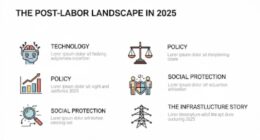The Senate just delivered a crushing blow to Big Tech’s biggest political gamble in years. In a stunning 99-to-1 vote, they completely scrapped a plan that would have banned states from creating their own AI rules for an entire decade. Buried in a massive omnibus bill, this amendment drew an unlikely line in the sand between Silicon Valley giants and musicians, parents, and local communities fighting for protection.
This wasn’t just a policy disagreement – it was an all-out political war. The tech industry poured tens of millions into lobbying, promising economic disaster if states kept passing their own AI laws. But something unexpected happened that changed everything. The scale of their investment was staggering.
The Tech Industry’s $50 Million Gamble
The tech industry bet big, pouring massive resources into lobbying for what they saw as an existential battle. This wasn’t pocket change or a routine political expense. This was Silicon Valley mobilizing its entire political machine to secure a ten-year moratorium on state AI regulations.
Andreessen Horowitz and Palantir led a united front, warning that a patchwork of state rules would slow innovation. These weren’t just random tech companies throwing money around. They coordinated their strategy to present a unified front, sharing talking points and synchronizing their messaging across Washington.
With over a thousand state-level AI bills proposed nationwide, Silicon Valley warned of a regulatory maze. Tech executives painted a picture of chaos, claiming this regulatory confusion would cripple American innovation and hand competitive advantages to China and other nations with simpler regulatory frameworks.
The industry recruited heavyweight political supporters to amplify their message. AI czar David Sacks endorsed the moratorium, framing state regulations as obstacles to American technological leadership. Commerce Secretary Howard Lutnick echoed these concerns, warning that any constraints on AI development posed serious national security risks. Their argument gained traction by connecting AI regulation to broader fears about America falling behind in the global technology race.
But opposition began building in unexpected places. This wasn’t just the usual collection of tech critics and consumer advocacy groups. Grassroots movements emerged from communities directly threatened by unregulated AI applications. Musicians worried about voice cloning. Artists concerned about unauthorized use of their work. Parents frightened by deepfake technology targeting their children.
The stakes became clear to everyone involved. This wasn’t simply about technical regulations or bureaucratic processes. This was about who gets to control artificial intelligence’s future in America. Would tech companies shape AI development through federal uniformity, or would local communities retain power to protect their specific interests and values?
The massive lobbying campaign created an unexpected consequence. Instead of quietly passing through Congress, the moratorium attracted intense scrutiny from media and advocacy groups. The tech industry’s heavy-handed approach drew attention to issues many Americans hadn’t previously considered. Their overconfidence led them to dismiss local concerns as minor obstacles rather than recognizing the genuine fears driving state-level legislative action.
Despite their financial resources and political connections, something fundamental was shifting in the political landscape. One state law in particular would crystallize everything at stake in this fight.
Tennessee’s Elvis Act Becomes the Symbol
Tennessee’s Elvis Act, passed this spring, transformed into something nobody expected. This state law protecting musicians from AI voice cloning became the perfect symbol of everything at stake in the moratorium debate. Named after the King of Rock and Roll, the legislation prohibited companies from using artificial intelligence to mimic artists’ voices without permission. A local Nashville law morphed into a national symbol for states’ rights in the AI debate.
Senator Marsha Blackburn stepped forward as the moratorium’s most vocal opponent, representing Tennessee’s music capital with fierce determination. Blackburn understood that Nashville’s entire economic foundation depended on protecting artists’ voices and creative output. She recognized that allowing a federal moratorium to block the Elvis Act would signal to every state that Washington valued tech company profits over local industry protection. Her position resonated far beyond Tennessee’s borders.
The coalition supporting the Elvis Act expanded beyond music industry professionals after real-world AI threats emerged. Scammers had used AI to replicate family members’ voices for ransom schemes, creating urgent fear among parents nationwide. Voice actors worried about AI replacing their livelihoods. Content creators feared deepfake technology would undermine their personal brands. Musicians across America saw the Elvis Act as their line in the sand, understanding that AI voice cloning technology could steal and monetize their voices without consent or compensation.
By downplaying voice cloning as a niche use case, tech lobbyists underestimated widespread public alarm. Recent incidents gave abstract policy debates concrete urgency. Political operatives created fake audio recordings of candidates making inflammatory statements. Musicians discovered unauthorized AI versions of their songs appearing on streaming platforms. These real-world examples made the Elvis Act’s protections feel necessary rather than theoretical.
The Elvis Act represented something larger than musician protection. It embodied the principle that local communities should retain power to respond to emerging technology threats affecting their citizens. States needed flexibility to address AI risks specific to their industries, cultures, and values. This wasn’t just about one law protecting one industry in one state. This was about whether states could maintain their constitutional authority to protect their residents from AI-driven harms that federal legislation might ignore or inadequately address.
With battle lines drawn and stakes clearly defined, both sides prepared for the final showdown. But nobody anticipated what would happen next.
Steve Bannon’s Podcast Studio Coup
Weekend talks yielded a 5-year moratorium with carve-outs for consumer and copyright protections. Republican and Democratic senators spent hours hammering out details they believed would satisfy the major concerns. Tech companies would get their regulatory certainty, just for a shorter period. States would retain power to protect consumers and artists through targeted exemptions. The compromise appeared to address the core issues that had made the original ten-year ban so controversial.
Then Steve Bannon stepped into his podcast studio and destroyed everything. Broadcast from his podcast, Bannon warned, “In the first 5 years, they’ll get all of their dirty work done,” undercutting the deal. His message reached Republican senators who had been willing to support the modified moratorium.
Within hours, conservative senators reversed course as grassroots activists and MAGA influencers blasted the compromise. Phone calls flooded Capitol Hill as the base mobilized against any version of the moratorium. The carefully negotiated deal started falling apart in real time as Republican after Republican withdrew support for even the modified version.
Behind-the-scenes negotiations turned frantic as the compromise collapsed. Senators changed their positions as political pressure mounted from their constituents. The weekend’s careful diplomatic work unraveled completely.
This exposed a new political reality that caught Silicon Valley completely off guard. Their alliance with Trump’s movement was far more fragile than anyone had realized. Tech companies had assumed their support for Trump would translate into reliable Republican backing for their policy priorities. Bannon’s intervention proved that assumption completely wrong.
The irony was unmistakable. Tech companies’ biggest political allies became their most vocal opponents when local interests were threatened. Bannon’s “techpro oligarchs” framing resonated with populist sentiment, even among traditionally pro-business Republicans. The same politicians who had championed Silicon Valley’s interests suddenly viewed them as threats to local communities.
Even Ted Cruz, a former moratorium champion, voted to strip it out once GOP support evaporated. His position flip demonstrated how quickly Republican support crumbled once grassroots pressure mounted against the tech industry’s agenda.
The stage was set for a final showdown that would reshape American politics in ways nobody expected.
The 99-to-1 Vote and Political Realignment
The final vote count was staggering: 99 to 1 against the moratorium. This represents one of the most lopsided defeats in recent Senate history. The tech industry’s massive lobbying campaign had produced almost nothing. Their coordinated strategy with major players like Andreessen Horowitz and Palantir had failed spectacularly.
Only retiring Senator Tom Tillis, who opposed every amendment, stood alone. His vote against removing the moratorium was more about opposing all amendments than supporting the tech industry’s position.
This vote exposed a massive miscalculation by tech companies about their political influence and coalition strength. Silicon Valley had assumed their support for Trump and connections to key administration figures would translate into reliable Republican backing. They believed their economic arguments about innovation and national security would carry the day. Instead, they discovered their political capital was far weaker than they had imagined.
The broader political realignment this represents is remarkable. With Democrats wary of Big Tech’s influence and Republicans mobilized by local-rights rhetoric, Silicon Valley found itself without reliable allies. Democrats had already grown skeptical of Big Tech’s power and influence. Republicans, energized by populist messaging about protecting local communities, turned against their former allies when grassroots pressure mounted.
This creates what might be the weirdest coalition in American political history. AI safety advocates and MAGA populists found themselves united against Big Tech. Groups that disagree on almost everything else came together around the principle that local communities should retain power to protect themselves from AI threats.
This means AI developers now face a state-by-state patchwork, just as the industry feared. Companies developing AI voice cloning technology, deepfake systems, and automated decision-making tools now face dozens of different state requirements. Each state will craft regulations addressing their specific concerns and industries.
This outcome empowers artists, consumers, and local communities to shape AI development in ways that protect their particular interests. Musicians can secure voice cloning protections. Parents can demand stronger safeguards for children online. Workers can push for transparency in automated hiring systems.
This wasn’t just about AI regulation. This was about whether local communities or tech giants get to decide artificial intelligence’s future in America. The answer came through loud and clear.
Conclusion
For musicians, parents, and workers, this is proof that organized communities can rein in AI risks. The massive lobbying campaign failed because real people with real concerns mobilized effectively against corporate interests.
Check what rules are in your state—your input can shape the next AI law. You need to stay informed about AI regulations in your own state and how you can participate in shaping these policies. Your voice matters in these debates, and this vote shows that grassroots activism can defeat even the most well-funded corporate lobbying efforts.
Grassroots power—not just corporate dollars—will define AI’s next chapter.









